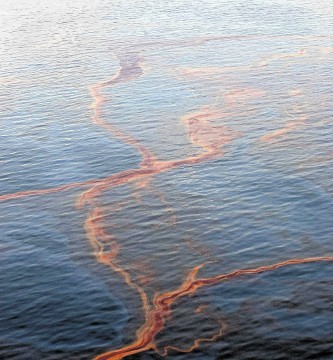
IT’S just over a year since the monstrous Macondo oil spillage was finally stopped on July 15, 2010 – more than three months after the devastating explosion on the Deepwater Horizon drilling rig killed 11 people and injured 17 others.
The largest accidental marine oil spill in the petroleum industry’s history forced a major step change, not only for BP but the industry as a whole, obliging it to make some significant investment in areas which had previously been pushed to one side.
These have included the collaboration of systems for out-of-control wells and the creation of two new agencies: the Bureau of Ocean Energy Management, Enforcement and Revenue, which handles the enforcement, and the Office of Natural Resources Revenue, which handles the revenue collection function.
Although there have been some grumblings from the industry about the regulators “moving the goalposts”, any move to improve systems and safety within the oil and gas sector must always be seen as a positive step forward.
The impact of Macondo on BP has been severe, both in terms of finance and its reputation. Following the declaration that the well had been pronounced dead on September 19, 2010, BP took a $41billion pre-tax charge for costs relating to the spill, and set about stripping non-core assets and cancelling the dividend to shore up its balance sheet.
The company’s share price fell by almost 52% after the explosion, and, at one point, market rumour was rife of a potential takeover which would have seen one of the UK’s biggest industry names fall into foreign ownership.
Political support also waned with the US Government particularly critical of BP throughout the whole process.
However, with the 2012 elections not far away, one can see a distinct change in US Government comment, with the Obama administration trying to minimise discussions on the Gulf of Mexico disaster.
The BP business has since started to recover strongly, but with asset disposals still ongoing worldwide. In the UK, the company has sold off its interests in Wytch Farm – Europe’s biggest onshore oil field – with Anglo-French firm Perenco paying $160million for a 68% stake.
This later fell to 50.1%, following UK’s Premier Oil exercising a pre-emptive right to take its share to more than 30%.
Continued strategic asset disposals must always be seen as a strength for BP, given it allows the super-major to exit mature developments which contribute little to the “bottom line”.
The biggest unquantifiable loss for BP is, of course, the damage to its reputation since the terrible events in the Gulf of Mexico. Given the company’s numerous mistakes (both reputational and operational) over the last year, not to mention this mismanagement of the BP/Rosneft deal, this may mean that the group’s long-term bargaining position with national oil companies (NOCs) may be weakened.
Furthermore, the battering of former chief executive Tony Hayward and some comments in the press have done BP little favours in its bid to appease its critics.
Mr Hayward, after a period out of the limelight, has however since found favour with Nat Rothschild. They, and several other well-known investors, have created Vallares – a London-listed PLC designed to buy up oil and gas assets where value is trapped by virtue or expertise. Although yet to buy any major assets, Mr Hayward will no doubt be using his BP expertise to identify potential buys for his new venture.
Meanwhile, his successor, Bob Dudley, who looked like he was beginning to get BP back on track, dealt himself a duff hand following the collapse of the Rosneft deal.
Various joint venture deals in Indonesia, China, Azerbaijan and with India’s Reliance Industries meant the company was moving in the right direction. But this, coupled with the recent settlement from Weatherford for its claims over Macondo, puts pressure back on to Transocean, Halliburton and Anadarko to begin negotiating their settlements.
There can be no doubt that despite the events of the last 12 months, BP has delivered significant shareholder wealth since the Conservative government’s privatisation strategy in the late 1980s.
One can only guess how “Beyond Petroleum” will look in another 20 years time.
o The opinions expressed in this document are not the views held throughout Brewin Dolphin.
No director, representative or employee of Brewin Dolphin accepts liability for any direct or consequential loss arising from the use of this document or its contents.
The value of your investment may fall and you may get back less than you invested
